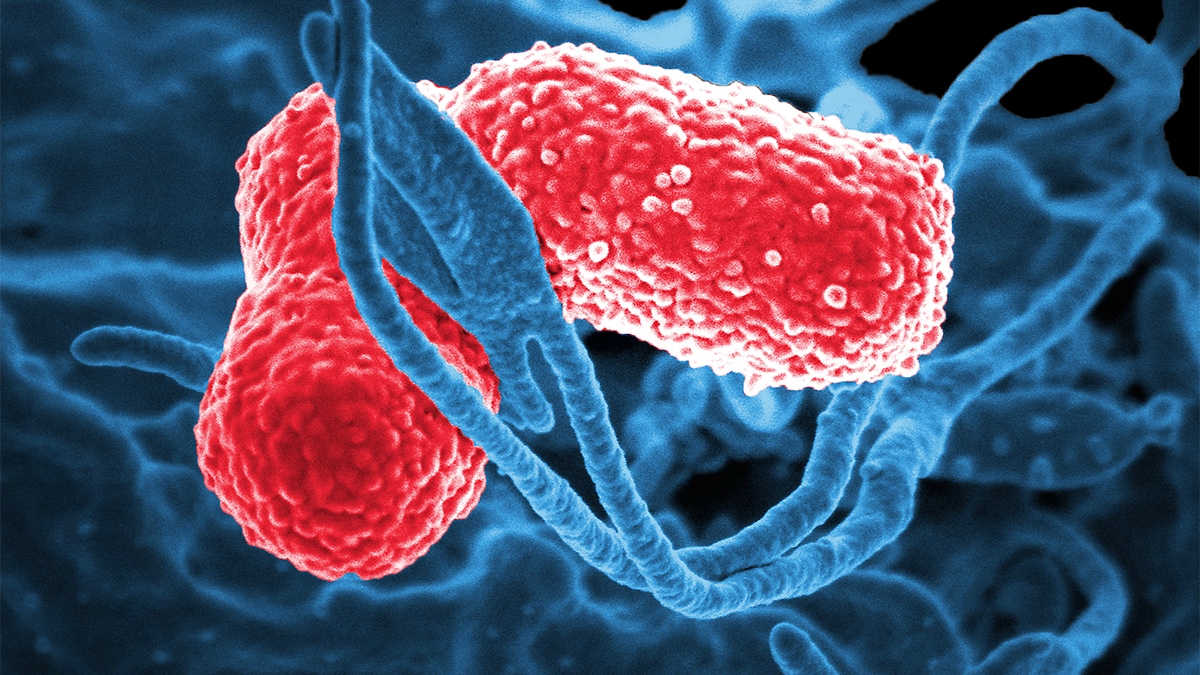Key points
- Klebsiella is a type of bacteria normally found in human stool (feces) that can cause healthcare-associated infections (HAIs).
- Klebsiella can cause pneumonia, bloodstream infections, wound or surgical site infections, and meningitis.
- Some Klebsiella bacteria are becoming increasingly resistant to antibiotics.

Overview
Klebsiella is a type of gram-negative bacteria normally found in human stool (feces) that can cause HAIs. Klebsiella are becoming increasingly resistant to antibiotics, including carbapenems (often the last line of defense against multidrug-resistant bacterial infections).
Signs and symptoms
Klebsiella can cause pneumonia, bloodstream infections, wound or surgical site infections, and meningitis.
Who is at risk
In healthcare settings, Klebsiella infections commonly occur among sick patients receiving treatment for other conditions. Patients with devices like ventilators (breathing machines) or intravenous (vein) catheters, and patients taking long courses of certain antibiotics are most at risk for Klebsiella infections.
Healthy people usually do not get Klebsiella infections.
How it spreads
- Person-to-person contact (most commonly).
- Contact with contaminated water or soil.
- Contact with contaminated equipment (e.g., ventilators (breathing machines) or intravenous (vein) catheters).
- Wounds caused by injury or surgery.
Klebsiella does not spread through the air.
Prevention
Patients should clean their hands often, including:
- Before preparing or eating food.
- Before touching their eyes, nose or mouth.
- Before and after changing wound dressings or bandages.
- After using the restroom.
- After blowing their nose, coughing or sneezing.
- After touching hospital surfaces such as bed rails, bedside tables, doorknobs, remote controls or the phone.
Healthcare staff should always follow core infection control practices to reduce the risk of spreading these germs to patients.
Testing and diagnosis
To determine if someone has a Klebsiella infection, healthcare providers will send a specimen to the laboratory. Testing can also determine what treatment will work best.
Treatment and recovery
Klebsiella infections are generally treated with antibiotics. Unfortunately, some Klebsiella bacteria (germs) are resistant to multiple antibiotics, which makes them difficult to treat.
What CDC is doing
- Tracking Klebsiella infections through the Emerging Infections Program and National Healthcare Safety Network, and resistance testing for some species through the Antimicrobial Resistance Laboratory Network.
- Data is also available on the AR & Patient Safety Portal
- Data is also available on the AR & Patient Safety Portal
- Working closely with health departments, other federal agencies, healthcare providers and patients to prevent infections caused by Klebsiella and slow the spread of resistant germs.
